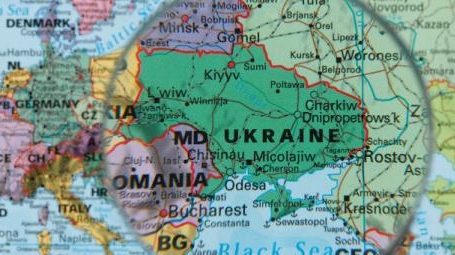By Miklos K. Radvanyi
Historically, the fate of what has been called only since the last decade of the 20th century the sovereign state of Ukraine has been depended mostly on the whims of the major European powers. Moreover, if one would like to separate the myths from the facts, Ukraine has never occupied a fixed geographical area or has been a political, economic, and cultural entity with well-defined national uniqueness. Thus, when independence was declared on August 24, 1991, the new state of Ukraine has lacked and is still devoid of a mature national identity.
On the other hand, in the ubiquitous euphoria of the relatively peaceful break up of the Soviet Union in the West, irrational optimism, coupled with blinding emotions, prevented well-meaning politicians, self-appointed experts, and the general public to weigh with due seriousness the enormous challenges that this newly minted state will and must face. In the intervening three decades, and before Ukraine could have attained a sufficient degree of national character, successive governments have brought it dangerously close to becoming an irredeemably failed state.
Meanwhile, after almost three years of relentless pursuit of the mirage of President Trump’s impeachment, the Democrats in the House of Representatives have latched theirs and their party’s political future onto the so-called “Ukrainian quid pro quo.” Claiming that in the ominous telephone call President Trump blackmailed Ukrainian President Zelensky by withholding almost half a billion dollars earmarked for military assistance in exchange for compromising information on Joe’s and Hunter Biden’s Ukrainian activities, and thus explicitly solicited the latter’s support for his reelection, the President committed an impeachable offense under Article II, section 4 of the constitution. To add additional legal insult to a clearly political injury, the Democrats stated that they reserve the right to charge President Trump with more crimes of their liking.
While almost all of the Democrats and many like minded citizens consider this development in Washington, D.C. a potential victory for the rule of law, such assessment misses the mark. The same politicians who accuse President Trump of endangering national security, remain strangely nonchalant about the precarious domestic and international conditions of Ukraine, the future of the United States’ interests in the European theatre, and the global dimensions of three decades of erroneous policies toward one of the largest European countries situated strategically between Russia and the rest of the continent.
To start with, Ukraine is in extremely deep political, financial, economic, social, and cultural crises. Therefore, President Zelensky intends simultaneously to make peace with Russia, to carry out wholesale reforms of the economy, to fight corruption, to petition international financial organizations and donors for bailouts, and to bring his country closer to NATO and the European Union.
For the United States of America, the desirable outcome would be successes for President Zelensky personally and his administration generally on all those fronts. Here, it is important to note that prior to 2016, during President Obama’s eight years, the near consensual view among Ukrainian experts was that support for Ukraine’s superficial stability was paramount. For this reason, President Obama and his administration did nothing to move successive administrations in Kyiv to abandon the ultra nationalist policies against ethnic minorities, the arrogant criminal corruption of politicians, and the rapid impoverishment of the society. Yet, President Obama’s passivity created an American political vacuum toward Ukraine that, in turn, invited Vice President Biden to exploit the corruption ridden Ukrainian political and economic systems for his and his family’s unethical and even criminal enrichment. More importantly, because they did not comprehend the depth of the ultra nationalism and the all encompassing nature of the corruption, the Obama administration treated Ukraine like a normal state. Not having a coherent Ukrainian policy, the Obama administration in general and Vice President Biden in particular showed their collective incompetence and institutional delusion of Ukraine.
Now that the Democrats use and abuse Ukraine as a domestic political football, what happens next is an open question. Will the Trump administration be able to fashion a coherent Ukrainian policy amidst the relentless negative campaign of the opposition? Likewise, will Russia exploit the self-generated American paralysis to deepen Ukraine’s misery? Will the decisively defeated ultra nationalist Poroshenko minority provoke a civil war to nullify the results of the spring elections? As a result, will Ukraine again be dominated by the old criminal enterprise rejected recently so decisively by the voters?
For the United States of America and especially for the Trump administration, the objective ought to be clear: President Trump must state firmly that the United States of America will not compromise its fundamental values. The Ukrainian question for him is not a fight over power against the Democrats but a matter of importance about democracy and prosperity. Ultra nationalism and unwarranted cultural fanaticism will not be tolerated. Equally, the endemic corruption must be eliminated decisively and moral purity shall be reestablished. For, if corruption and immorality will continue, Ukraine will disappear as an independent nation. Finally, in direct opposition to President Obama, President Trump must emphasize to President Zelensky that he is not interested in whether he is loved or hated in Ukraine. On his part, he will act with honor toward Ukraine. In turn, President Zelensky and Ukraine can count on President Trump’s assistance if they respect the new Realpolitik of the United States of America.
